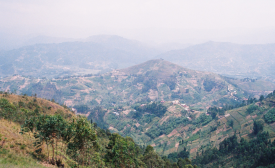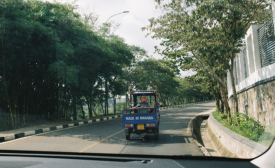rwanda

USC Master of Public Diplomacy alum Janika Berridge captures her experience as a Management Intern in the U.S. Embassy in Kigali, Rwanda, through a series of sunning 35mm photographs.

USC Master of Public Diplomacy alum Janika Berridge richly describes her ten weeks as a management intern in the U.S. Embassy in Kigali, Rwanda.

How several young Rwandans are using their talents to help craft a new narrative for the country.
Every May 31, the World Health Organisation (WHO) and partners mark World No Tobacco Day (WNTD), highlighting the risks associated with tobacco use and advocating for effective policies to reduce tobacco consumption. The Ministry of Health through Rwanda Biomedical Centre (RBC) is organising this year's celebration under the theme, 'Tobacco a Threat to Health, Environment and Development' which will take place at Nyamirambo Stadium in Kigali. According to WHO, about 6 million people die from tobacco use every year.

This week’s PD News roundup looks at nation branding efforts from Rwanda to North Korea.
The third Transform Africa Summit Transform Africa Summit opens today today at the Kigali Convection Centre, attracting about 3,000 delegates. [...] This year's summit's focus is on 'smart cities' with an aim to ensure African capitals embrace technology to effectively deliver services.
Tourism is a key foreign exchange earner in East Africa. Rwanda, which is still heavily dependent on foreign aid after the 1994 genocide tore the nation apart, has been seeking to boost the sector. Tourism generated $404 million from 1.3 visitors in 2016, and revenues are expected to climb 14 percent to 460 million in 2017.







